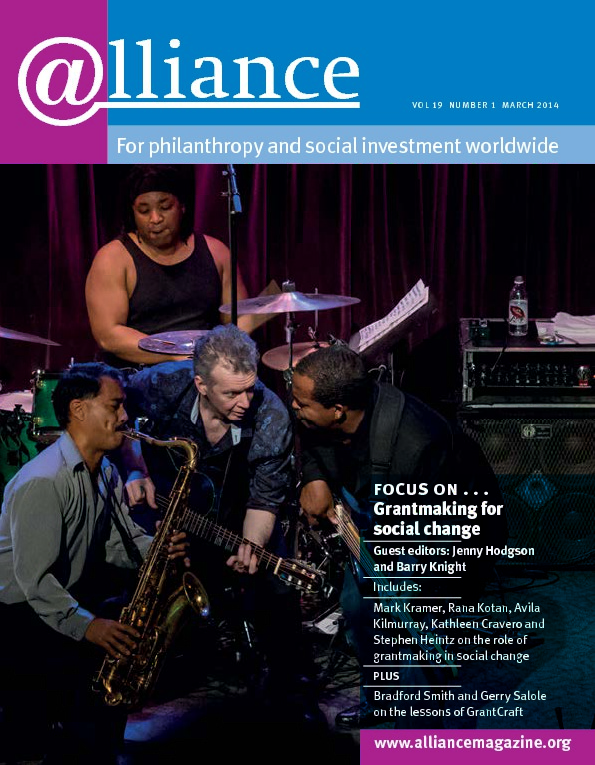When proofreading the contents page for this issue of Alliance, I came across the expressions ‘game-changer’ and ‘game-changing’ just a few lines apart. For an editor, repetition is anathema: the reflex reaction is ‘must change one of them’. But then I thought again. The words are used by Akwasi Aidoo writing about Africa and by Andre Degenszajn writing about Brazil. Surely there is some significance in this.
When is repetition a virtue? Maybe when it signals important similarities. For this Alliance special feature on ‘Grantmaking for social change’, we asked people from Africa, Brazil and Turkey, plus Helena Monteiro from WINGS, to write on ‘Why grantmaking matters’. My initial thought as I read the articles was: are these a bit repetitive? But if people writing independently are all making the same points, and so forcefully, surely this is indicative of something.
Over and over, the point is made that grantmaking is important in countries where civil society is not well established. ‘Grants made to NGOs in Turkey go beyond making an investment in social development and justice,’ says Filiz Bikmen. ‘They serve to enable and strengthen civil society, which is ultimately an investment in Turkey’s democratization.’
If the need for grantmaking is so evident, why all the fuss? As Jenny Hodgson and Barry Knight make clear, grantmaking is unfashionable – all right in its place, but not if you are serious about achieving social change. But is this fair? Andre Degenszajn warns against ‘undermining a practice that has never been fully established in Brazil. The consequences for democracy and innovation in the social field may be dire.’
Reading the interviews with the finalists for the Olga Alexeeva Memorial Prize (see the supplement in this issue of Alliance) adds poignancy to such warnings. The prize finalists are people who are struggling to build organized philanthropy in countries where there is little tradition of it. It is clear from their accounts that it hasn’t been easy. ‘I always appreciated that this would be a long process,’ says Lucia Dellagnelo, founder of Brazil’s second community foundation, ‘but it’s taking longer than I expected.’
Not that grantmaking is valuable only where philanthropy and civil society are emerging. Atlantic Philanthropies’ support for civil partnership for same-sex couples in Ireland is just one example of what it can achieve in a more developed economy.
Finally, none of this is an attempt to undermine approaches such as strategic philanthropy and catalytic philanthropy. We have always said that this special feature aims to reinstate grantmaking as a strategy for achieving social change – not as the strategy, the truth, but as one of a number of approaches that funders can use. As Phil Buchanan says in his reflections on the special feature, ‘context is everything’.



Comments (0)